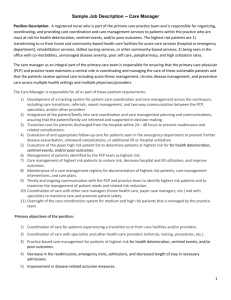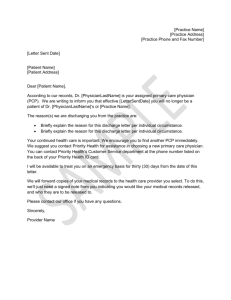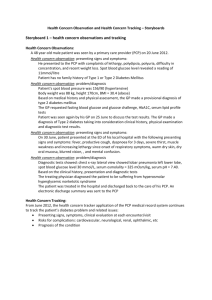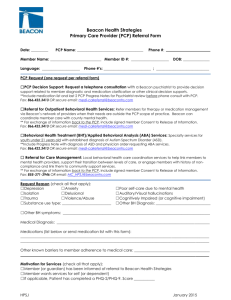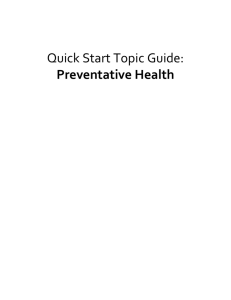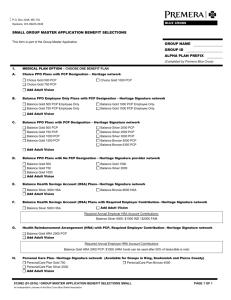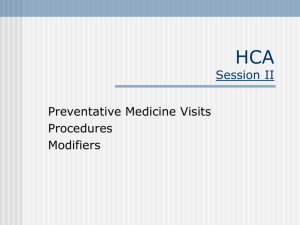Preventative Care
advertisement
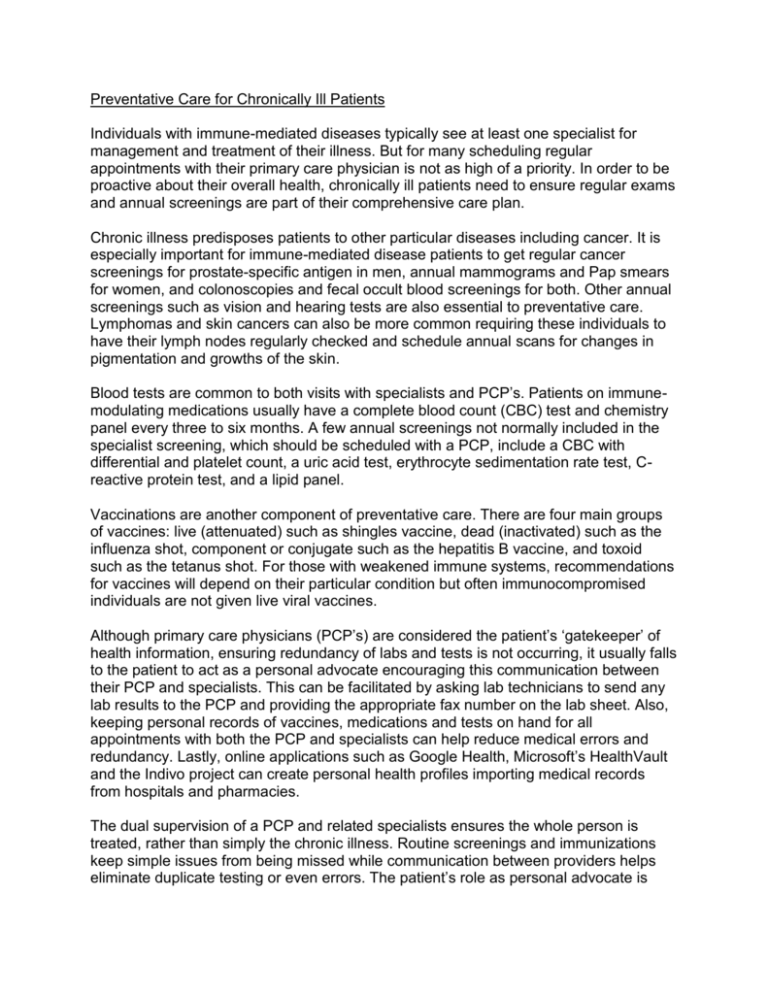
Preventative Care for Chronically Ill Patients Individuals with immune-mediated diseases typically see at least one specialist for management and treatment of their illness. But for many scheduling regular appointments with their primary care physician is not as high of a priority. In order to be proactive about their overall health, chronically ill patients need to ensure regular exams and annual screenings are part of their comprehensive care plan. Chronic illness predisposes patients to other particular diseases including cancer. It is especially important for immune-mediated disease patients to get regular cancer screenings for prostate-specific antigen in men, annual mammograms and Pap smears for women, and colonoscopies and fecal occult blood screenings for both. Other annual screenings such as vision and hearing tests are also essential to preventative care. Lymphomas and skin cancers can also be more common requiring these individuals to have their lymph nodes regularly checked and schedule annual scans for changes in pigmentation and growths of the skin. Blood tests are common to both visits with specialists and PCP’s. Patients on immunemodulating medications usually have a complete blood count (CBC) test and chemistry panel every three to six months. A few annual screenings not normally included in the specialist screening, which should be scheduled with a PCP, include a CBC with differential and platelet count, a uric acid test, erythrocyte sedimentation rate test, Creactive protein test, and a lipid panel. Vaccinations are another component of preventative care. There are four main groups of vaccines: live (attenuated) such as shingles vaccine, dead (inactivated) such as the influenza shot, component or conjugate such as the hepatitis B vaccine, and toxoid such as the tetanus shot. For those with weakened immune systems, recommendations for vaccines will depend on their particular condition but often immunocompromised individuals are not given live viral vaccines. Although primary care physicians (PCP’s) are considered the patient’s ‘gatekeeper’ of health information, ensuring redundancy of labs and tests is not occurring, it usually falls to the patient to act as a personal advocate encouraging this communication between their PCP and specialists. This can be facilitated by asking lab technicians to send any lab results to the PCP and providing the appropriate fax number on the lab sheet. Also, keeping personal records of vaccines, medications and tests on hand for all appointments with both the PCP and specialists can help reduce medical errors and redundancy. Lastly, online applications such as Google Health, Microsoft’s HealthVault and the Indivo project can create personal health profiles importing medical records from hospitals and pharmacies. The dual supervision of a PCP and related specialists ensures the whole person is treated, rather than simply the chronic illness. Routine screenings and immunizations keep simple issues from being missed while communication between providers helps eliminate duplicate testing or even errors. The patient’s role as personal advocate is crucial to maintaining open lines of communication and a comprehensive preventative and illness management plan running smoothly.
